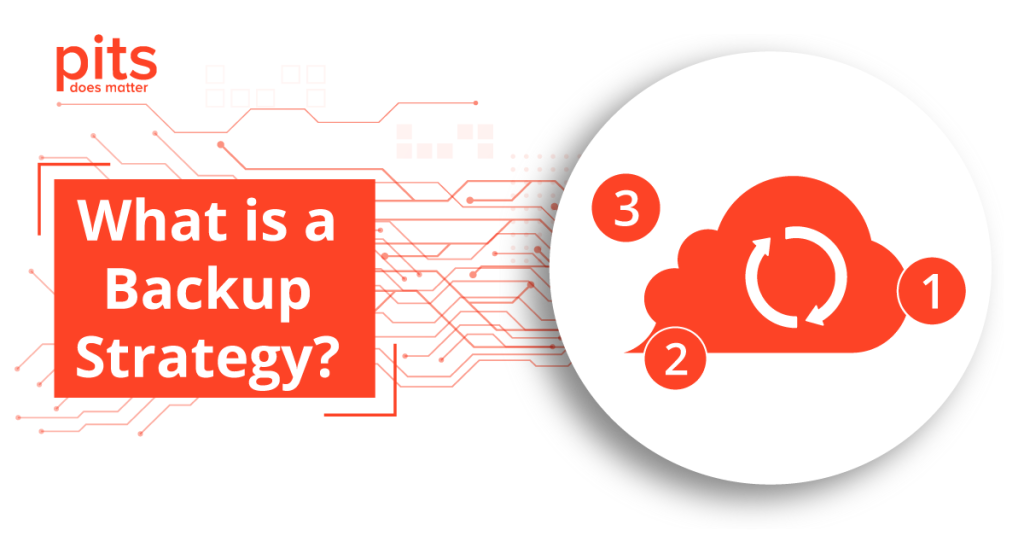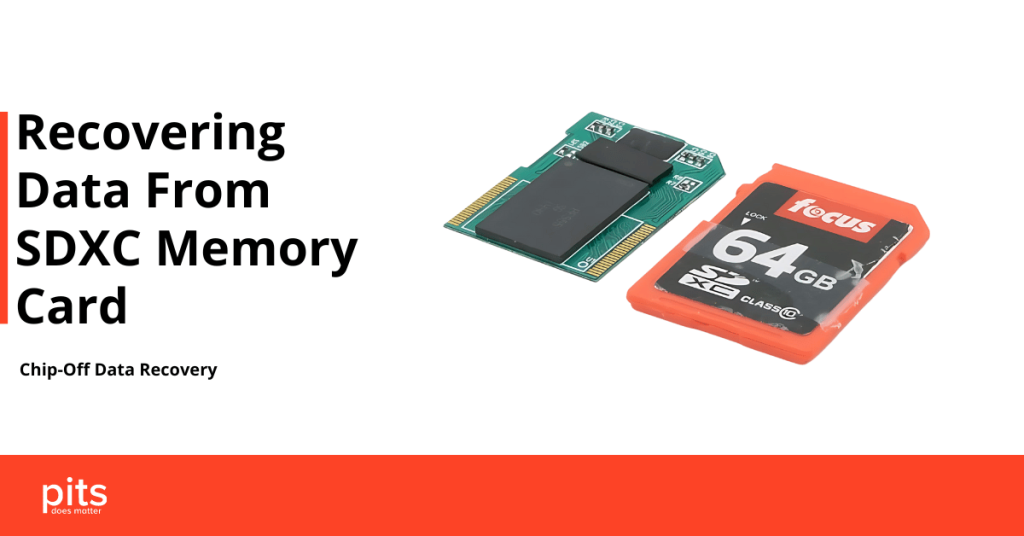PC hard drives are an essential component of modern computers. They store your operating system, programs, files, and data. Hard drives have come a long way after their inception, and many types of hard drives are available today. In this blog, we will cover everything you need to know about PC hard drives.
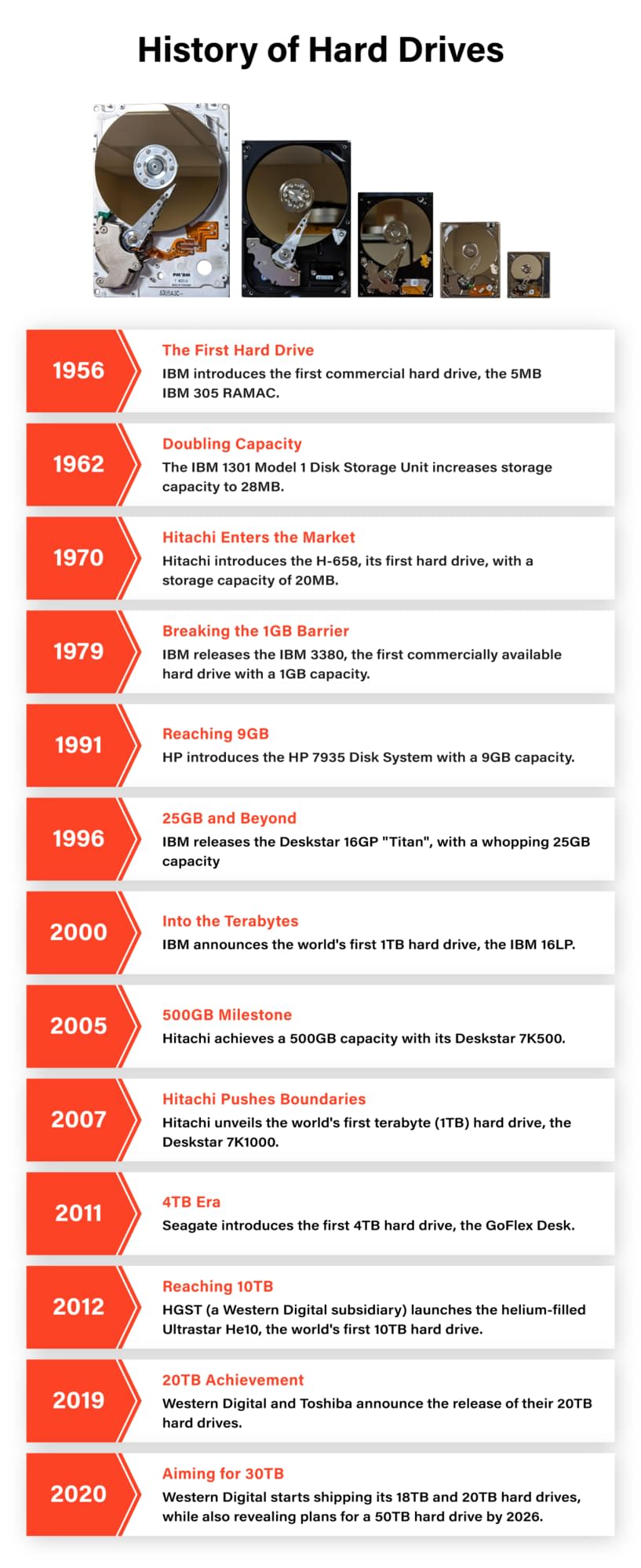
What is a PC Hard Drive?
A hard drive for a PC, commonly known as a “hard drive” or “HDD” (Hard Disk Drive), is a storage device that can retain data even when the computer is turned off. Its main purpose is to store and retrieve digital information for your computer, including operating systems, software programs, documents, photos, videos, and other data types.
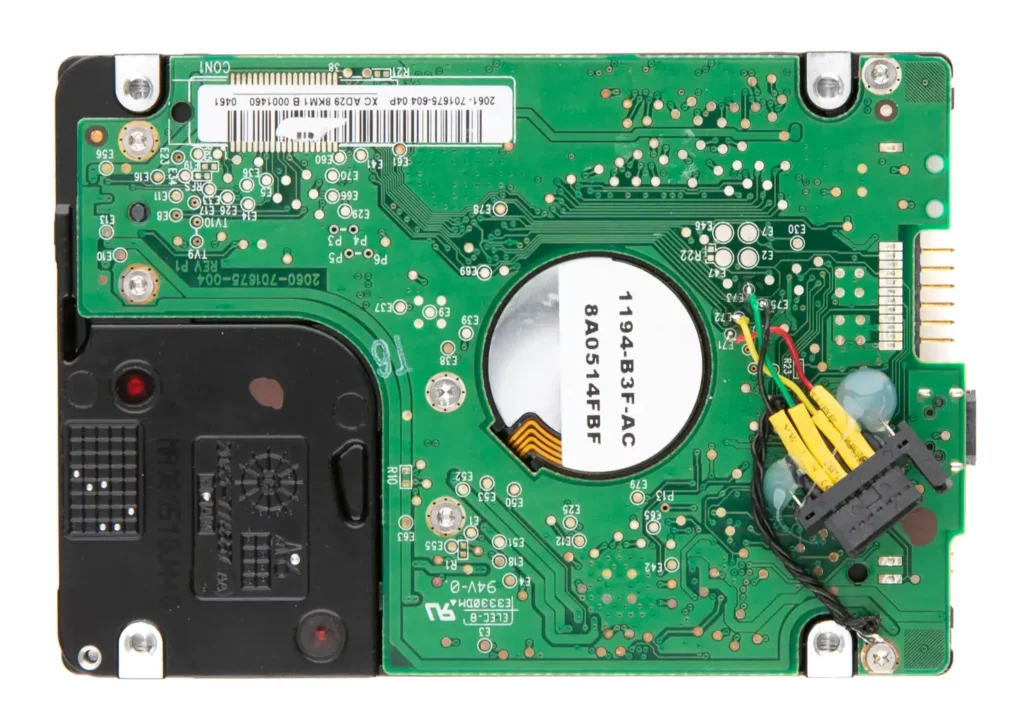
Capacity Ranges
Hard drives come in various capacities, ranging from a few hundred gigabytes (GB) to multiple terabytes (TB). The capacity you choose depends on your storage needs.
Consider factors such as the size of your files, the number of applications you use, and whether you plan to store large media files like videos and high-resolution images.
Form Factors
Various PC designs require different form factors for hard drives. Desktop computers typically use a 3.5-inch drive as the most common form factor. Specialized applications require smaller form factors.
Interfaces
Your computer’s motherboard connects to hard drives through dedicated interfaces. The SATA (Serial Advanced Technology Attachment) interface is the most widely used for HDDs and provides satisfactory performance for most users. In addition, some specialized interfaces may be employed for enterprise or high-performance use cases.
Mechanical Hard Disk Drive (HDD)
Mechanical hard drives are the older type of hard drive and are still widely used today. They use spinning disks to store data and have mechanical moving parts. The disks spin at high speed and the read/write head moves across the disk to access and store data.
Traditional hard drives are relatively inexpensive and have large storage capacities. They are best suited for storing files like photos, videos, and music.
However, they can be slower than other types of storage media and are prone to mechanical failure. If you need large amounts of storage on a budget, an HDD may be the best choice.
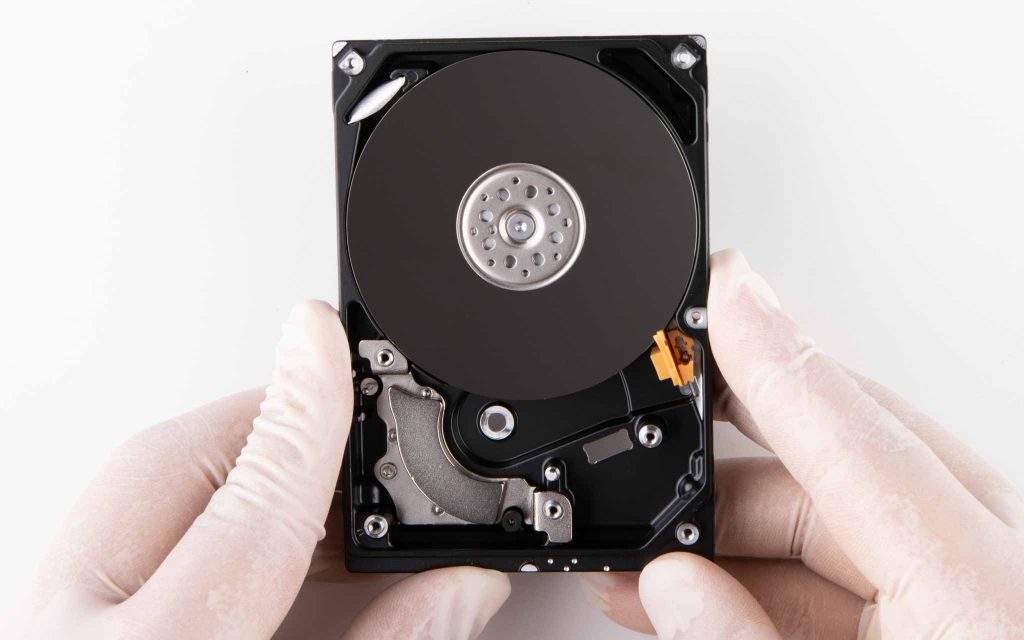
Overall, mechanical hard drives offer reliable storage with large capacities at a reasonable cost, but they can be slower than other types of storage media. If you are looking for quick access times and top-notch reliability, then an SSD is probably your best bet. However, if you need lots of file storage in one place on a budget, then HDDs are still the way to go.
Factors to Consider When Choosing a Hard Drive for Your PC
Hard Drive Capacity
The capacity of a hard drive is the amount of data it can store. Hard drives come in various sizes, and their capacity is calculated in gigabytes (GB) or terabytes (TB). The larger the capacity of a hard drive, the more data it can store.
The capacity you need will depend on your needs. If you are a gamer or a content creator, you will need a larger capacity hard drive than someone who only uses their computer for browsing the internet.
Comparing hard drives with different storage spaces is important to ensure you get the right size for your tasks. Most modern hard drives have spinning disks called disk platters, which store data on magnetic surfaces. As technology advances and production costs decrease, larger-capacity hard drives will become more affordable. This means that it may be possible to buy a hard drive with a much higher capacity than what is currently available in the future.
Regardless of your needs, it is important to consider the capacity of a hard drive before purchasing it. Higher capacity drives may cost more initially, but they can save you time and money in the long run if you need to store large amounts of data or install many applications. You can find the perfect hard drive for your needs by researching different models and brands.
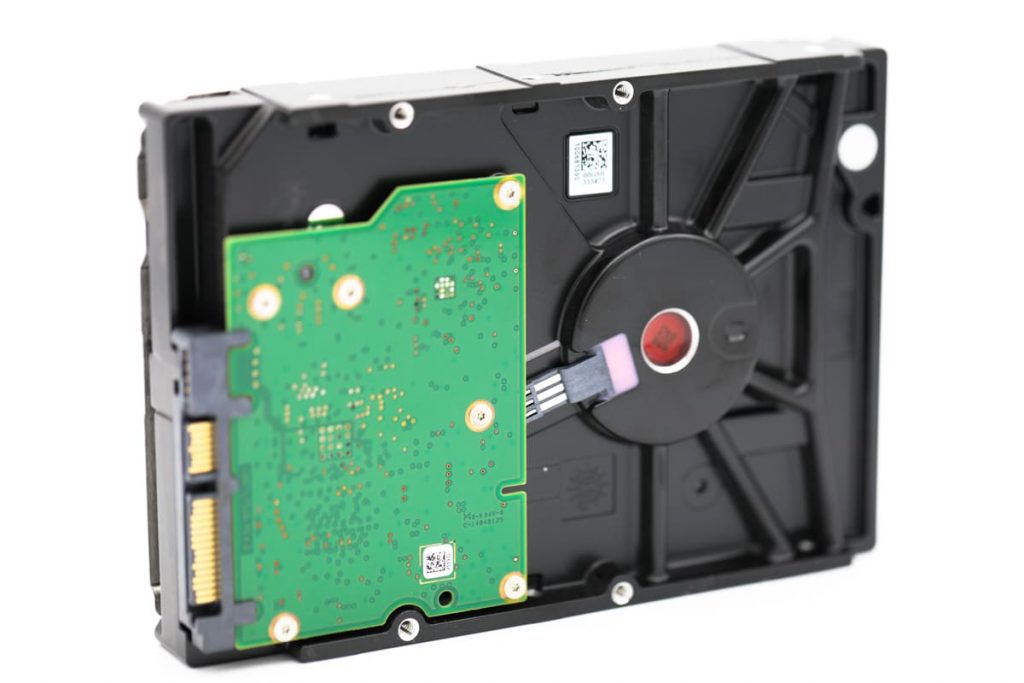
Read Write Speeds of Drive
The speed of a hard drive is how quickly it can read and write data. The faster the hard drive, the quicker it can read and write your data. The speed of a hard drive is measured in revolutions per minute (RPM) for HDDs.
Faster hard drives are better for running applications and operating systems. They can also help improve overall system performance.
When choosing a hard drive, consider the drive’s speed concerning your particular needs. A slower hard drive may be sufficient to store files and documents on it. If you use the hard drive for PC games or heavy media production, look for a higher RPM HDD.
Another factor affecting a hard drive’s speed is how it is connected to your computer. Generally, internal hard drives perform faster than external ones as they connect directly to the motherboard. Additionally, different connection interfaces, such as SATA and USB, affect data transfer rates, so choose one that suits your needs.
Finally, consider whether the hard drive is compatible with your system. For example, an older hard drive may not be able to keep up with the higher data transfer rates of a newer system, so it is essential to find one that will work for you.
When selecting a hard drive, consider how fast it needs to be for your particular use case and ensure that it is compatible with your system before purchasing.
Reliability of HDD
Hard drives can fail, and when they do, you can lose all your critical data in a moment. It is critical to consider several factors when choosing a hard drive to reduce the risk of data loss. Some hard drives are more reliable than others. Look for one with good reviews and ratings from customers, as well as one that has been used by people for a long time and has established a good reputation.
Nevertheless, both types of hard drives can fail, so it is essential to back up your data regularly. An online cloud storage system can be a great way to store your data in multiple locations, ensuring it is safe even if one of your hard drives fails.
Overall, reliability is an important consideration when choosing a hard drive. You want to make sure that your data is stored securely and backed up regularly in case of a hardware failure. Investing in reliable storage solutions will help ensure the safety of your data over time.
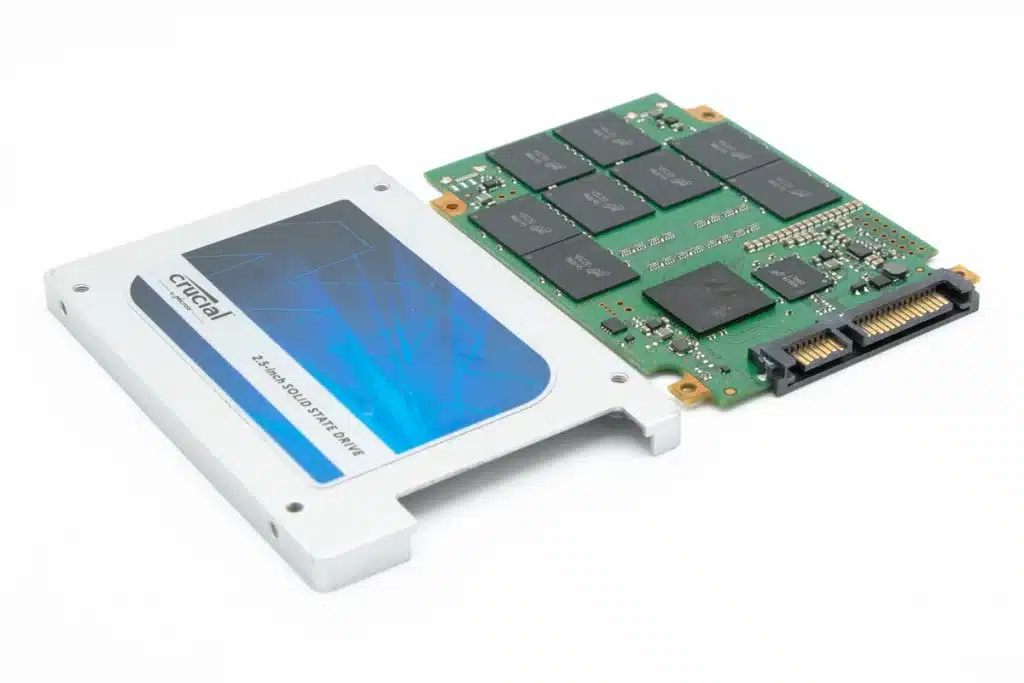
The Noise of the Data Storage Device
Mechanical hard drives can be noisy because of the spinning disks and the moving parts. If you use your computer in a quiet environment, consider a more silent mechanical hard drive.
On the other hand, if you use your computer in a louder environment or need to store a lot of data, then a traditional mechanical hard drive might be the right choice. Mechanical hard drives tend to be cheaper and have more storage capacity than SSDs, so they are a good choice for storing large amounts of data. They also can handle heavier workloads without any problems.
It is important to ensure that it is properly installed and maintained to ensure reliability. Regularly backing up your data is also important to protect your files from being lost in case of a hardware failure on your internal or external hard drive.
In conclusion, PC hard drives are an essential component of modern computers. When choosing a suitable storage option, you need to consider factors like capacity, speed, reliability, noise, price, and compatibility.
Frequently Asked Questions
What is a hard drive?
A hard drive, also known as a hard disk drive (HDD), is a primary storage device used in computers to store and retrieve digital data. It consists of one or more rotating magnetic disks (platters) coated with a magnetic material and read/write heads that move across the platters to read or write data.
How does a hard drive work?
A hard drive works by using magnetism to store and retrieve data. When data is written to the hard drive, the read/write heads magnetize specific areas on the rotating platters to represent the binary information. To read data, the read/write heads detect the magnetic changes on the platters and convert them back into digital information.
What are the advantages of HDDs?
- High storage capacity: HDDs offer larger storage capacities at a lower cost per gigabyte compared to SSDs.
- Wide availability: HDDs are widely available in various sizes and form factors, making them suitable for different types of systems.
- Compatibility: HDDs are compatible with most computers and operating systems.
Can I use both an SSD and an HDD in my computer?
Yes, many computers utilize a combination of SSD and HDD storage. The SSD can be used as the primary drive for the operating system and frequently accessed files, while the HDD can be used for mass storage or less frequently accessed data.

